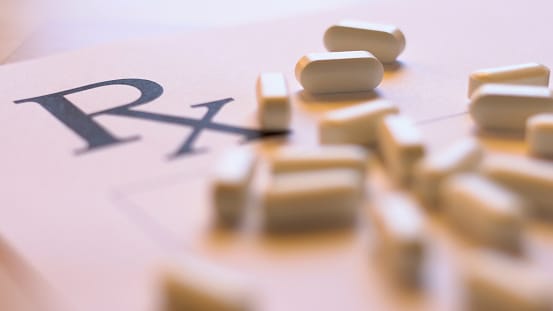Prescription opioid abuse has become a crisis in the United States. Painkillers such as Vicodin, OxyContin, and fentanyl are commonly prescribed, highly addictive, and frequently misused. According to the National Institute on Drug Abuse, approximately 54 million Americans have used prescription painkillers for nonmedical purposes at some point in their lives.

Prescription opioid abuse has become a crisis in the United States. Painkillers such as Vicodin, OxyContin, and fentanyl are commonly prescribed, highly addictive, and frequently misused. According to the National Institute on Drug Abuse, approximately 54 million Americans have used prescription painkillers for nonmedical purposes at some point in their lives. Ten percent of all patients who are prescribed painkillers will go on to develop an addiction. And each day, over 115 Americans die from an opioid overdose.
What causes an overdose?
An overdose occurs when a person uses more of a substance than their body can handle. No one can tell exactly how much of a drug it will take to push someone to the point of an overdose. Different people have different thresholds, but risk factors for an overdose include poor physical health, mental illness, using alone, or having a history of a previous overdose. Whether it occurs accidentally or intentionally, an overdose can often be fatal.
Users of prescription painkillers report a sensation of euphoria when the drug first hits their brains. This is why people become addicted: to continually chase the feeling of being high. Eventually, though, your brain will develop a tolerance to painkillers, and you’ll need to take larger doses of the drug to achieve the same high – and that puts you at risk of an overdose.
What happens to your body during an overdose?
During an overdose, the drug overwhelms the parts of your brain that control your respiratory and circulatory functions. Neurological signals are suppressed, leading to slowed breathing and heart rate. Sometimes, people who overdose may experience abnormal heart rhythms; sometimes they will enter full cardiac arrest.
As heart and lung function ceases, your organs become deprived of oxygen. At this point, kidney and liver damage can occur, and the longer your brain goes without oxygen-rich blood, the higher your chances are of developing severe seizures and irreversible brain damage.
Signs of a painkiller overdose
People in the midst of an overdose may experience disorientation, hallucinations, severe headaches, or overheating. However, in the moment, they usually don’t have the self-awareness to realize what’s happening. It’s often up to outside observers to identify the signs of an overdose, which include:
- Cold, clammy skin
- Blue or grey lips and nails
- Slow or absent breathing
- Gurgling sounds or snoring
- Vomiting
- Shaking
- Tiny pupils
- Unresponsiveness
What to do during an overdose
If you suspect someone is experiencing a painkiller overdose, it’s crucial to call 911 immediately. Timely medical attention can mean the difference between life and death. Emergency first responders are equipped with naloxone, a drug that can reverse the effects of an opioid overdose and potentially save lives. Administered via nasal spray or injectable syringe, naloxone works by blocking the opioid receptors in the brain, enabling lung and heart function to resume almost instantaneously.
Alvarado Parkway Institute can treat your addiction to painkillers
Painkiller addiction can be deadly. Don’t wait until it’s too late. If you’re struggling to stop using prescription drugs, Alvarado Parkway Institute can help. We offer both inpatient and outpatient treatment for addictive disorders, as well as dual diagnosis treatment for co-occurring mental illness. Our dedicated physicians and staff members will develop a customized treatment plan to help you overcome your addiction and maintain your recovery long after treatment is through.
Call us today at (619) 485-1432 for more information.
